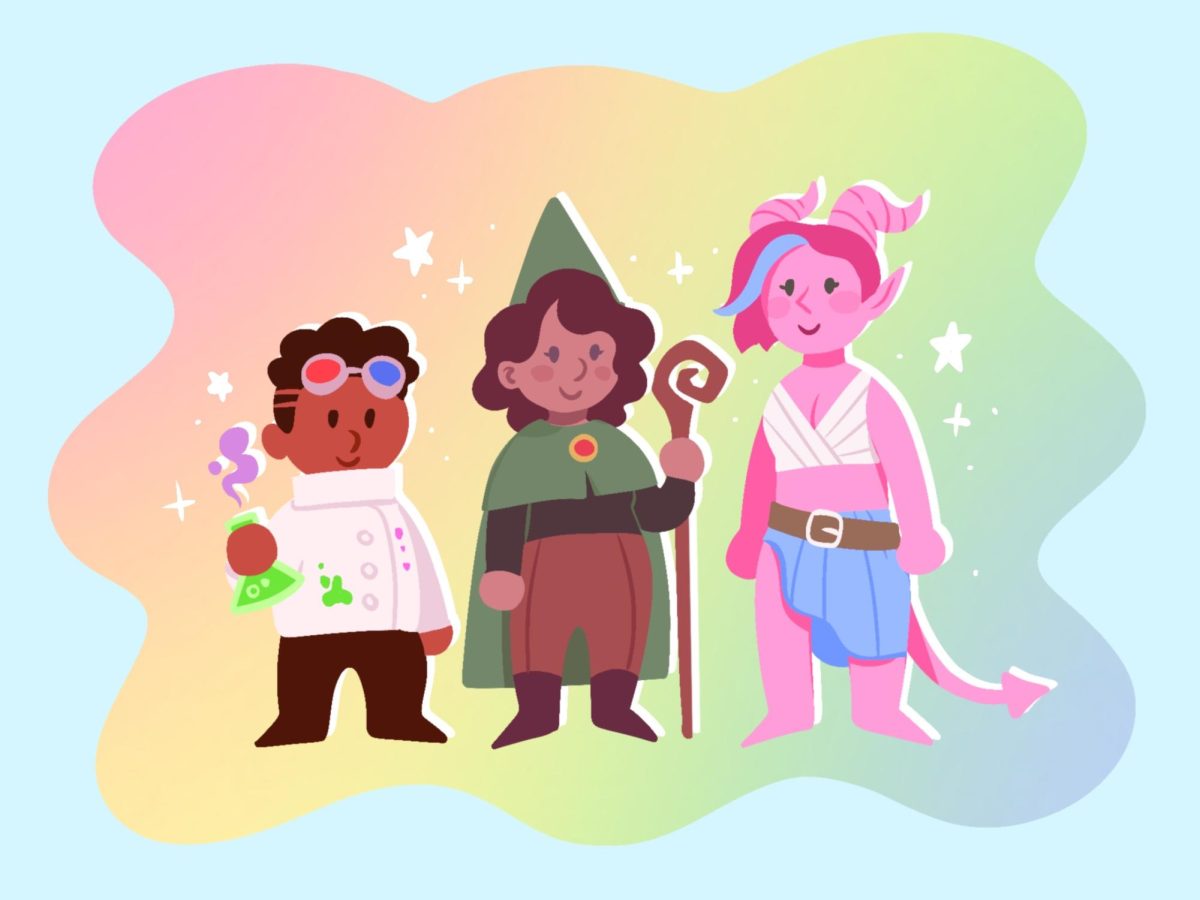Early last week, Disney announced Tamara Smart will be playing Thalia Grace in “Percy Jackson and the Olympians,” the Disney+ adaptation of Rick Riordan’s hit book series. The announcement was met with celebration from fans across social media, but Smart’s casting reminded many of the backlash her co-stars had initially faced.
Social media was rife with backlash to multiple adaptations across streaming platforms, as each show adapted its predominantly-white source material with diverse casts.
Thursday marks the season two finale of Amazon Prime’s “The Lord of the Rings: The Rings of Power,” a television adaptation of J.R.R. Tolkien’s fantasy novels. HBO Max’s “House of the Dragon” finished its second season in August.
Both shows featured actors of color alongside their white castmates in high fantasy worlds, as dwarves and elves fighting the forces of evil or Lords and Ladies fighting for the Iron Throne.
Despite their fantasy settings, both faced backlash for divergence from the original source material.
“The Rings of Power” actors, Ismael Cruz-Córdova and Sophia Nomvete faced adverse reactions after their debut, as some viewers were upset at the creator’s lack of accuracy to the original source material.
Their experience mirrors that of Steve Toussaint, who portrayed Lord Corlys Velaryon in House of the Dragon, a white character in George R. R. Martin’s “Fire & Blood.”
“They’re happy with white hair and violet-colored eyes, but a rich Black guy? That’s beyond the pale,” Toussaint said in a 2022 interview with Men’s Health.
Megan Kirchoff, a 21-year-old fan of “House of the Dragon,” was originally drawn to the show for its writing and argued that the show does not have to be perfectly accurate to its source material to be enjoyable.
“I think the personality of the character is kind of what matters the most because that’s what makes the story so great,” Kirchoff said. “It’s what kind of impact these characters each had on the storyline.”
This sentiment was echoed by Craig Rice, the senior film programmer for MSP Film. Rice explained that filmmakers have the right to take liberties with their adaptations and interpret them in their own way.
“I look at it as all you’re supposed to do as a filmmaker is to honor the story,” Rice said.
Frederick Valentine, a first-year at the University of Minnesota and longtime fan of “The Lord of the Rings,” shared a similar perspective. Having read Tolkien’s works multiple times, Valentine was excited for a new interpretation of Middle Earth, despite the changes the show had made.
“I don’t agree with all the opinions and views that he puts forward in his books,” Valentine said. “But they’re still great books, which is the entire reason why they’ve been adapted. You can love something, but, you know, change it up a little bit.”
According to Valentine, newly introduced characters, like Nomvete’s dwarven character Princess Disa, and the interpretations of familiar characters, have positively modernized Tolkien’s ideas.
“I’d be so tired if everybody in the entire Rings of Power was white because it doesn’t reflect the world we live in today,” Valentine said.
Modernizing an author’s work for an on-screen adaptation does not have to be considered an attack against the original work. University professor of cultural studies and comparative literature Charles Kronengold said fans should understand the context in which the books were written in.
When considering Tolkien’s work, Kronengold acknowledged that the author pulled inspiration from the world he lived in that is no longer the norm.
“He’s teaching mostly white kids. By and large, all of his colleagues are white,” Kronengold said. “So the fact that in his head he’s casting his book with an all-white cast is kind of an accident of history that we don’t need to be faithful to.”
While some fans may argue that the changes are inaccurate to the source material and historical influences, the reality is these shows are creations of fantasy. They feature dragons fighting in battles or immortal elves forging rings with the power to bend reality. There is no historical context to point to when arguing about the accuracy of these adaptations.









Tom
Oct 8, 2024 at 2:38 pm
Sounds like some pretty brave, important stuff.